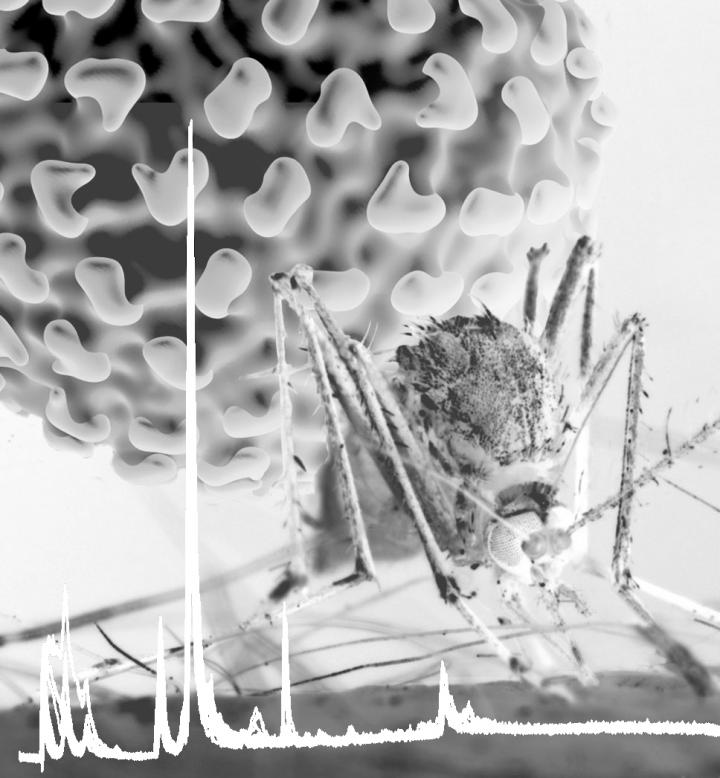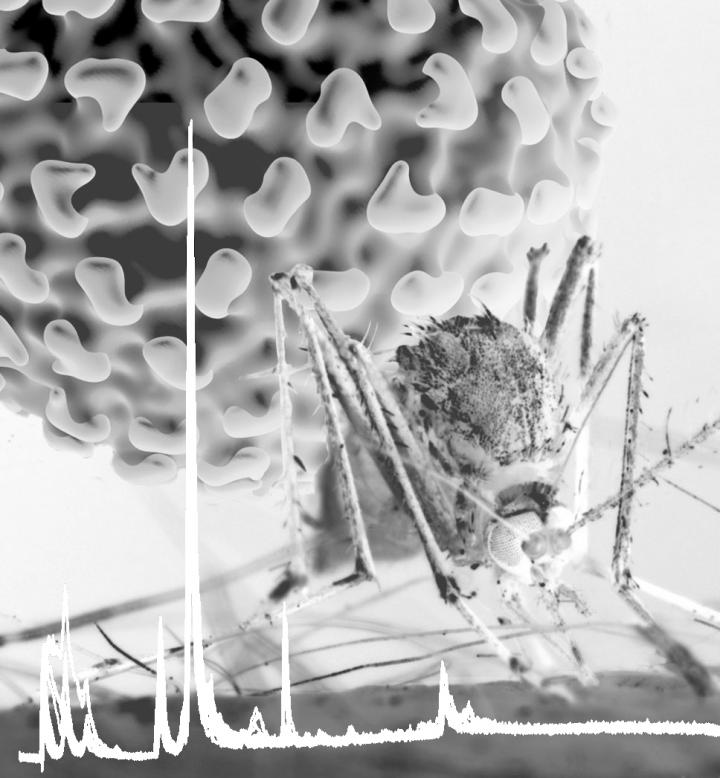
Credit: (Purdue University photo/ Rodney McPhail)
The midgut of a mosquito may hold the key to preventing mosquito-borne diseases like Zika and Dengue, according to research published in PLOS Pathogens.
A mosquito's ability to replicate and transmit a virus depends on the metabolic environment of tissues in its midgut: the primary site of infection. By targeting the sphingolipid pathway, which links together several pathways important for cell signaling and subcellular structure that are altered by virus infection, researchers could devise strategies that stall viral replication in the mosquito and prevent its transmission to humans.
"The strategies that are being pursued right now often involve sterilizing mosquitos or eradicating them, and those might work, but a subtler way would be simply changing the ability of the virus to exploit a pathway and let the mosquito continue on like nothing happened," said Richard Kuhn, a researcher in Purdue University's Institute of Inflammation, Immunology and Infectious Disease. "It's fairly common these days to alter the expression of genes, so we might be able to create a different form of the enzyme that is not susceptible to virus manipulation."
Arboviruses move between mosquitos (or ticks) and hosts. After an infected mosquito bites a host, the host comes down with the disease, and eventually another mosquito bites the host, picks up the disease in its blood meal and the cycle continues.
When a mosquito is infected, its metabolism changes to accommodate the virus. In the case of Aedes aegypti, the "yellow fever mosquito," there are big fluctuations in molecules that function as membrane building blocks, energy storage molecules and intermediates in lipid production.
These changes could be a result of cellular resources being redistributed for viral replication, the cellular response to infection, or both. The consequences for mosquitos aren't totally clear.
"There is a lot we don't know about the 'cost' to the vector, but there is no argument there is one," said Catherine Hill, also a researcher in Purdue's Institute of Inflammation, Immunology and Infectious Disease. "The same phenomenon occurs when we get an infection. There are signatures that indicate it experiences stress, and host resources are 'redistributed' to processes that affect pathogen infection, replication and transmission, and presumably away from other life cycle processes."
The study describes the first comprehensive analysis of the Aedes aegypti midgut. Usually, this type of experiment is done in cells, and researchers make assumptions about how the results would translate to a human or mosquito.
"Here, we're looking directly at the mosquito," Kuhn said. "I can't tell you how much work it was to isolate a sufficient number of mosquito midgut cells that were infected with Dengue virus."
Arboviruses are endemic in tropical and subtropical regions of the world, but rising temperatures are expanding the areas in which mosquitos can thrive. Cases of Dengue have increased 30-fold over the past 50 years, and climate is known to be one of the important drivers.
"Control of mosquitoes that transmit diseases to humans is at a crisis point," said Hill. "We currently rely on only four classes of insecticides; resistance to these products is widespread among mosquito populations and we face a very real risk of losing control or being unable to contain disease outbreaks."
###
Researchers from Colorado State University, led by Rushika Perera, collaborated with the Purdue team on this work. The Institute of Inflammation, Immunology and Infectious Disease is housed in Purdue's Discovery Park.
This work was funded by the Boettcher Foundation – Webb Waring Biomedical Research Early Career Investigator award to Rushika Perera, by the Virus Pathogen Resource, (NIAID) award to Richard J. Kuhn, Catherine Hill and Rushika Perera, and by the Office of the Vice President for Research and the Department of Microbiology, Immunology and Pathology, Colorado State University.
Media Contact
Kayla Zacharias
[email protected]
765-494-9318
@PurdueUnivNews
http://www.purdue.edu/
Original Source
http://www.purdue.edu/newsroom/releases/2018/Q1/mosquito-gut-may-hold-the-key-to-preventing-dengue-and-zika.html





